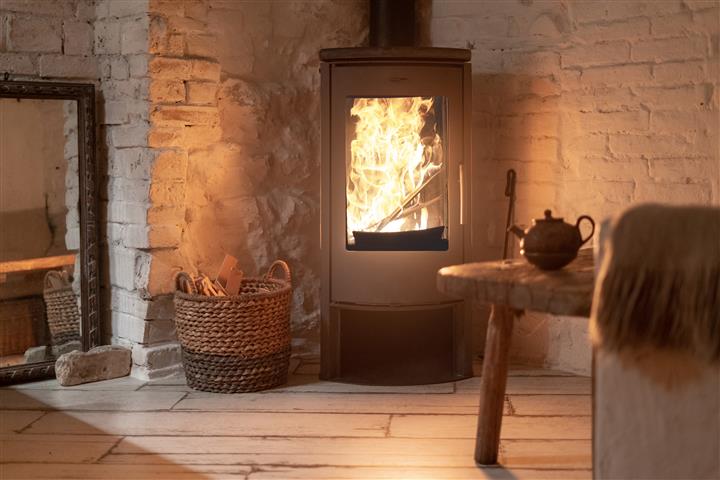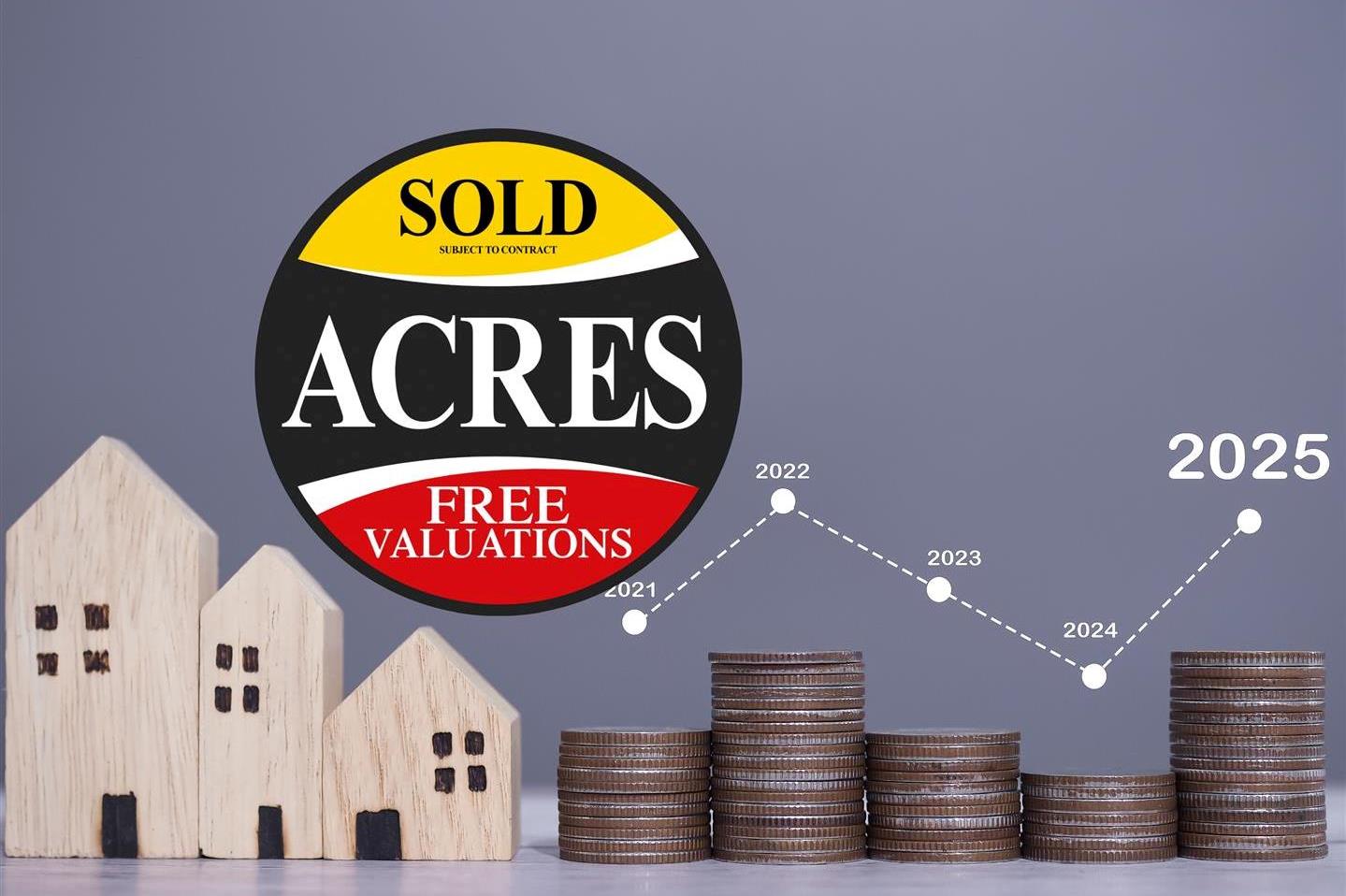Latest News
- Details
- Hits: 440
Well what a year 2024 was !
The general election, a change of government, and the big Autumn budget. We of course saw a lowering of interest rates ( with more expected to follow ) and indeed an increase in confidence, activity and of course sales.
We are very pleased to report that the New Year, and reduced interest rates from lenders has helped bring buyers back into the market. Indeed, January, February and March were very strong with an excellent 80% more buyers being registered, leading to substantially more viewings being undertaken and most importantly, sales agreed.
With this in mind, as we approach the tail end of the winter, if you are thinking of marketing your property then doing so in March & April is a great idea, getting ahead of the rush of properties traditionally coming on to the market in April / the Spring - of course Easter is early this year as well.
If you would like to discuss your potential sale further, or are ready to market your property then of course we would be delighted to hear from you once more, either now, or in the coming weeks / months.
We very much hope we can be of assistance if you are still thinking of a move.
Should you have decided to put a move on hold for a while longer then as and when the time is right please give us a call, or drop us an email as we would be delighted to hear from you.
Want to check how much your home is worth? You can get an Instant Valuation here.
If you would like to discuss selling your home, please get in touch with us This email address is being protected from spambots. You need JavaScript enabled to view it. or call any of our busy, helpful teams/offices:
Four Oaks 0121 323 3088
Sutton Coldfield 0121 321 2101
Walmley 0121 313 2888
Great Barr 0121 358 6222
Lettings 0121 312 4997
Thank you for reading this article, and your interest in Acres and our property for sale.
Nigel & Jayne Deekes – Acres Partners
- Details
- Hits: 1300
Is 2025 the year to buy or sell ? Personal circumstances of course are a key aspect, but so is the market itself, and predictions for the coming year can be an integral part of when to make your move. So, perhaps you’re wondering what the next 12 months could hold for the housing market. Take a look at our predictions to make sure you start your journey as prepared as possible.
2025 will still be a buyers’ market
Rightmove previously talked about 2024 being a buyers’ market, and 2025 may be set to be no different. Things like an improved choice of property for sale, higher prices, and of course currently higher interest rates may mean buyers will continue to have a slightly upper hand. However, as always if a property is priced sensible it will generate interest, and a sale.
Latest house price news: What’s happening now?
House prices hit a peak of £298,083 in November 2024 in the UK, according to Halifax. This surpassed the previous peak of £293,507 set in June 2022.
However, changes announced in the Autumn budget and changes to stamp duty rules coming into effect in April 2025 could impact UK housing market confidence.
Mortgage rates have been on a rollercoaster ride in recent years, from historic lows to the higher rates we saw following Liz Truss’s disastrous mini-budget in 2022. While there have been ups and downs since, mortgage rates are now down significantly compared to those highs which means buying a house is more affordable.
And the mortgage rate predictions are that rates will fall further in 2025, due to the expectation that the Bank of England will continue to cut interest rates.
What’s happening with sold prices?
Sold prices are the most accurate indication of what’s happening in the property market. However, sales that feature in this data may have been agreed months ago. So, they don’t necessarily reflect what’s happening now. However, they are still very useful:
- Nationwide: While Nationwide’s House Price Index reported an average house price of £268,144 in November. This was an increase of 1.2% on October 2024, and an annual increase of 3.7%.
Did property prices rise in 2024 ?
- Land Registry: The Land Registry’s House Price Index, reported an average house price of £292,000 in October with house prices up 0.2% versus September and up 3.4% compared to October 2023.
What’s happening with asking prices?
Looking at what’s happening with asking prices can give us a useful overview of what’s currently happening in the UK property market. However, the downside is that these figures are about the price asked for by sellers, not the sold prices agreed.
House price predictions for the next 5 years
Savills‘ house price prediction for the next 5 years is that the average UK house price will rise by a total of 23.4% by 2029 taking the average house price to £442,000.
Prices forecast for 2025
Experts predict that average asking prices will increase by 4% by the end of next year, which, is the largest growth since 2021, but is in-line with the long-term average. For context, the pandemic years of 2020 to 2022 saw extraordinary price growth, driven by lots more people looking to move than there were homes for sale.
Mortgage rates look set to fall, but not to historic lows
Five-year and two-year fixed rates could drop to around perhaps 4.0% in 2025, down from the current averages.
This reduction in average mortgage rates is tied to predictions of Bank of England Base Rate cuts in 2025. But as always, external factors like geopolitical events and inflation could change this.
For those deciding between fixed-rate options, two-year deals may become increasingly attractive as their costs align more closely with five-year rates. This trend reflects shifting preferences, with shorter terms potentially offering better flexibility.
Lower rates are likely to boost buyer confidence and affordability, however it is probable we won’t see a return to ultra-low mortgage rates.
Stamp duty changes impacting buyer activity
From April 1, stamp duty rates are set to rise, which could mean increased buying costs. Data has shown a rush among some buyers aiming to complete their purchases before the deadline.
Partner of Acres Nigel Deekes commented : “ The imminent date of the 1st April will see Stamp duty rise meaning we are likely to see a continuation of a busier market for the first three months of the year as buyers try to complete on purchases and avoid the increases. Following the changes we may see some negotiation tactics by buyers, “
Remortgaging will also be a big focus
If you’re nearing the end of a fixed-rate mortgage deal, remortgaging will probably be on your mind. Homeowners that taking five-year fixed rates during the pandemic, or two-year fixes after Liz Truss’ mini budget will face decisions about their mortgages as their deals come to an end.
Here’s what this could mean if your mortgage ends soon:
- If you locked in a five-year fixed rate during 2020, when fixed rates were much lower on average, you may see higher costs when you remortgage
- If you secured a two-year fixed deal at higher rates in 2022 or 2023, you could benefit from lower monthly repayments as rates decline
To help homeowners keep track of what’s happening with rates, Rightmove have launched a remortgage rate tracker. This can help you monitor trends, and explore your options when the time comes to lock in a new mortgage deal.
Our 2025 house price forecast
Since the Base Rate cut, we’ve seen an increase in buyer demand. The number of people contacting Acres about property was up 33% on the quieter 2023 housing market, and the number of sales agreed is up by over 57% to November 2024.
Despite a seasonal house price fall in November, the strong home-moving activity we have seem in December points to a possible increase in house prices in of 2025. Rightmove says : “The signs are that the market momentum that we’ve been seeing this year will continue, especially if mortgage rates drop to a level that gives greater affordability to some movers who have been waiting in the wings. However, we still expect some twists and turns next year. ”
While the Bank of England’s Base Rate, and mortgage rates, are predicted to edge down more slowly than previously thought, they’re still predicted to fall over the course of 2025.
“ More people choosing to make their move in 2025, teamed with lower mortgage rates, could push house prices up by 4% over the course of 2025. “
Prices end the year 1.4% above December 2023.
- Despite the festive lull, activity remains substantially stronger than the same period a year ago.
- Some movers are now waiting for the traditional New Year bounce:
- Rightmove’s real-time data also captures the impact of the looming stamp-duty deadline on March 31st 2025:
- Sellers of smaller properties in higher-priced areas are trying to beat the deadline to avoid higher tax
- Prices are holding up best in the first-time buyer sector, especially homes priced below the £300,000 threshold
- Despite the signs of a stronger 2025, headwinds remain, with the impact of Budget measures being a challenge
Lisa Brown of Acres Financial Services comments “ Home buyers will need to remain on their toes, as mortgage deals are still in something of a state of flux and lenders are repricing regularly. There certainly isn’t the luxury of being able to hold off from committing to a deal and expecting it to still be there in a week or so, as rates continue to come and go quickly.’
Contact Lisa / Acres financial service here for expert mortgage advice
Want to check how much your home is worth? You can get an Instant Valuation here.
If you would like to discuss selling your home, please get in touch with us This email address is being protected from spambots. You need JavaScript enabled to view it. or call any of our busy, helpful teams/offices:
Four Oaks 0121 323 3088
Sutton Coldfield 0121 321 2101
Walmley 0121 313 2888
Great Barr 0121 358 6222
Lettings 0121 312 4997
Thank you for reading and your interest in Acres and our property for sale.
Nigel & Jayne Deekes – Acres Partners
- Details
- Hits: 518
Why January great time to market
As this is our first post of the year, may we start off by wishing you all the very best for 2025. Following a much better year than expected, the general election, a reduction in interest rates, and better optimism things are geared up to be interesting, to say the least, but one thing is certain throughout 2025, Acres are here for you.
We all spend a lot of time at home over Christmas, often your home can seem perhaps a little small with many visitors, or indeed too large now the family have their own homes perhaps ? So, for many of us it’s only natural to start thinking about the future. Some take the opportunity in the January “ sales “ to embark upon that long-awaited new kitchen, or bathroom, while lots decide it’s time to look for a new home. In fact, many of families locally will place their home on the market in January, with many many more buyers also joining them.
If you’re looking to make a move, it’s a great opportunity to achieve a timely sale with such an influx of newly energised buyers.

The early bird catches the worm
Perhaps unsurprisingly, the Christmas – New Year holidays are busiest days for people looking at homes on portals like Rightmove and OnTheMarket. Fed up with a dear family member banging on about the election result or perhaps that new year diet, people start dreaming of what the new year could bring, and buying a new home is high up on the agenda.
This trend continues throughout January, with buyer enquiries and sales normally more than doubling. For those looking to sell, getting on the market as early as possible in January is vital to capture this spike in interest. Remember most sellers don’t know this and so look to market in February or even March, basic supply and demand, lots of buyers not as many sellers, a quicker sale generally, and perhaps even a better price….. Also, of course if you’re looking to buy on, once sold in a few weeks, your perfectly placed for the aforementioned influx of sellers.
Earlier on we touched on the idea that buyers are eager to get out and about, touring and looking at different properties as the weather warms and summer knocks. But how sure can you be that all of those viewers are serious buyers? The simple fact is that house hunting and touring different neighbourhoods is a lot more fun in the warmer spring and summer months, and so the chances of getting time wasters in your home is much higher.
Marketing your property in January is a sure fire way of ensuring that those who do book viewings are serious – after all, with the sofa calling and the weather outside often cold and fairly miserable, why would someone book to view a property if they weren’t serious?
While not all of these buyers will be interested in your home specifically, you can rest assured that those who do book a viewing are at least serious buyers who are looking to move in the near future.
If you’re ready to sell, choose your estate agent wisely and make sure they understand the market, as clearly Acres do, and are fired up to get you on sale, and sold as soon as possible. click here to book your free valuation.
Tips to get a quick sale

Now that you’ve got an idea of the benefits of selling your property or home in January, how can you place yourself in the best possible position to gain a quick sale?
- Make your home welcoming for potential buyers, by lighting the fire (if you have one), turning up the heating, and presenting a cosy and homely environment.
- Take down your Christmas decorations (after all, it is January) to give potential buyers a sense of everyday life in the property.
- Don’t let your garden let you down. Cut the grass and make sure it is as aesthetically pleasing as possible – even without flower beds and lots of greenery.
- Open blinds and curtains to show off how much natural light the property gets.
- Conduct tours and viewings in the daytime as much as possible. While this can be difficult in January with daylight hours so limited, you will find that potential buyers want to see the exterior of your home and its surrounding area in daylight and will be more likely to show interest if they can book a daytime viewing.
- Consider the journey of potential buyers from car to front door. Will they have to walk through any mud or puddles? What can you do to make that journey the best it can be and enhance your property’s kerb appeal?
Are you considering moving home? If you would like to discuss selling your home, please get in touch with us This email address is being protected from spambots. You need JavaScript enabled to view it. or call any of our busy, helpful teams / offices :
Four Oaks 0121 323 3088
Sutton Coldfield 0121 321 2101
Walmley 0121 313 2888
Great Barr 0121 358 6222
Lettings 0121 312 4997
Thank for reading and your interest in Acres and our property for sale. Nigel & Jayne Deekes – Acres Partners
- Details
- Hits: 1681
Upcoming Changes to Stamp Duty ( effective 31 March 2025)
In this article we will explain the Stamp Duty Land Tax changes ( SDLT, or as it is better known Stamp duty ) and compare costs for different buyer types to help you understand how the changes might affect you.
There are significant Stamp Duty changes in 2025, that those making any property-related plans in the coming months should be aware of.
Stamp Duty Land Tax is the tax payable to HM Revenue and Customs when buying a property. The amount of Stamp duty will depend on several factors, including :
- Is the buyers a UK resident
- Are they purchasing a property as an individual or company
- Aa first-time buyer
- Replacing a their main home
- Buying for an additional property
In September 2022, the Government announced a temporary increase to the thresholds for stamp duty. These increases are due to end on 31 March 2025, meaning that any transaction which completes after will be subject to the increased rates.
The current Stamp Duty rates on a standard residential purchase of a freehold property for an individual that is UK resident and replacing a main residence are as follows:
0% up to £250,000
5% above £250,000 and up to £925,000
10% above £925,000 and up to £1,500,000
12% above £1,500,000
On 31 March 2025, there are several changes coming into effect.
- The nil rate threshold currently £250,000 will return to the previous level of £125,000.
- The nil rate threshold for first time buyers, currently £425,000 will return to £300,000.
- The maximum price for which First-Time Buyers Relief can be claimed is currently £625,000 and will return to £500,000.
So, from 31 March 2025 the rates on a standard residential purchase of a freehold property replacing a main residence will be as follows:
0% up to £125,000
2% above £125,000 and up to £250,000
5% above £250,000 and up to £925,000
10% above £925,000 and up to £1,500,000
12% above £1,500,000
Want to check how much stamp duty is payable on your purchase use our stamp duty calculator here
By completing before the Stamp Duty changes come into effect, a buyer can save upto a significant £2,500.
The rules are different for second homeowners (investors) and companies.
Second homes and investment properties
Immediately after the Autumn Budget, as of 31 October 2024, the UK government increased the Stamp Duty Land Tax (SDLT) surcharge for additional residential properties from 3% to 5% above the standard rates.
This change affects purchases of second homes, buy-to-let investments, and holiday properties.
From April 2025 there will be an additional charge of 2% for the portion between £125,000 and £250,000 which will further add cost to these types of purchases.
SDLT Rates for Additional Properties: Before and After April 2025
Property Value (£) Rate Before April 2025 Rate After April 2025
Up to £125,000 5% 5%
£125,001 to £250,000 5% 7%
£250,001 to £925,000 10% 10%
£925,001 to £1.5 million 15% 15%
Above £1.5 million 17% 17%
The Stamp Duty changes are likely to have the most significant impact on first time buyers. By reducing the nil rate threshold by £125,000 and reducing the maximum purchase price for which first-time buyers’ relief can be claimed by the same amount may mean that first time buyers have no other choice but to wait even longer to get on the property ladder.
For first-time buyers the rate will be as follows:
How much will first-time buyers pay?
Currently, in England first-time buyers are exempt from paying stamp duty on homes priced up to £425,000. However, starting April 1, 2025, a 5% stamp duty rate will apply to properties priced between £300,001 and £500,000.
For the latest information about Stamp Duty Land Tax rates, including a Stamp Duty calculator, please click here to access the UK Government website
For expert guidance tailored to your circumstances, contact us. Our experienced team is here to help you navigate these changes and make informed decisions.
Want to check how much your home is worth? You can get an Instant Valuation here.
If you would like to discuss selling your home, please get in touch with us This email address is being protected from spambots. You need JavaScript enabled to view it. or call any of our busy, helpful teams/offices:
Four Oaks 0121 323 3088
Sutton Coldfield 0121 321 2101
Walmley 0121 313 2888
Great Barr 0121 358 6222
Lettings 0121 312 4997
Thank you for reading and your interest in Acres and our property for sale.
Nigel & Jayne Deekes – Acres Partners
- Details
- Hits: 596
The Bank of England has announced that it will reduce the Base Rate by 0.25%, to 4.75% this month – the second reduction this year. Base Rate was held in September after being reduced in August, which had been the first drop since 2020.
The Bank meets every six weeks to decide what should happen to interest rates. With the aim of keeping inflation to its target, and keeping the wider economy healthy. It was announced in October that inflation had fallen to 1.7%, which is below the 2% target the government sets for the Bank.
The markets had been widely predicting a cut to interest rates today, as continuing to hold rates may have a negative knock-on effect on businesses and households, further down the line.
What’s happened to mortgage rates recently?
We’ve seen mixed behaviour from lenders in recent weeks, with some increasing their mortgage rates, and some decreasing. This is largely because we’ve seen quite a bit of movement in swap rates – the underlying costs of mortgages to lenders – which has meant some have needed to reprice their products to bring themselves back in line with the rest of the mortgage market.
You can check the current average rates for a range of different deposit sizes here.
What do the experts think?
Our mortgage expert, Matt Smith, says: “This Base Rate decision comes at the end of a run of important macro-economic and political events on both sides of the Atlantic. All of this has resulted in a view that Base Rate will be cut at a more moderated pace than previously expected and has been priced in by lenders. Therefore we are likely to see average mortgage rates drift up a little in the short term, before starting to fall back again.”
“Today’s decision will probably help relieve pressure on lenders to increase rates as we had started to see. If the last few weeks has taught us anything, it is that the UK mortgage market remains competitive, but headline pricing will continue to be impacted by events both in the UK and overseas”, he adds.
What does the Base Rate reduction mean for my current mortgage?
Changes to the Bank’s Base Rate can impact how much interest you’ll pay on loans, including mortgages. If you’re on a fixed-rate deal, your monthly payments won’t change until the end of your deal. And if you’re on a tracker mortgage, or a variable rate mortgage that follows Base Rate changes, this month’s Base Rate reduction will mean your monthly payments will take on this drop.
If you’re coming to the end of your fixed-rate mortgage soon, you’ve probably already started to think about the rate you’ll be offered on your next deal.
If you’re thinking of moving home soon, a good way to find out how much you could borrow is to use a mortgage calculator. You can get a personalised result by applying for a Mortgage in Principle, which will take you one step closer to a mortgage offer.
In July 2023, the Mortgage Charter was launched to help those struggling to meet their monthly payments, as well as borrowers who are coming to an end of their fixed rates soon.
The Mortgage Charter encourages lenders to be flexible and offer borrowers the chance to lock in a new deal up to six months before their current rate ends. Of course, borrowers can also look at moving to another lender – commonly known as remortgaging – but this can take longer, as you have to go through a normal lending process, such as income checks, the legal process, and maybe a valuation of your home.
This all takes time, and you would want to make sure you’re looking around a few months before the end of your current deal to avoid falling onto your lender’s on to a Standard Variable Rate – which will cost more than the repayments you’d have made on a fixed rate mortgage. The current average for SVRs is 8.01%.
What could the Base Rate reduction mean for affordability?
Lenders’ ‘stress test’ calculations – which is how they calculate whether someone could afford a mortgage were their repayments to jump considerably – are directly linked to the Standard Variable Rates that we just talked about above.
The ‘stressed rate’ is usually the lender’s SVR, with at least 1% added on top. So, if lenders’ SVRs reduce in line with this Base Rate cut, we might start to see affordability improve, because the stressed amount will now be lower than if Base Rate was at 5%.
What could happen next?
The Bank of England’s Monetary Policy Committee meets every six weeks to discuss and vote on whether rates should go up or down, or stay the same.
History has shown that after interest rates have increased over time, they have remained flat before starting to come down. So while we’re now seeing the beginning of the downward curve, it’s extremely unlikely that rates will drop back to the historic lows we saw back in 2021.
After the Base Rate cut in August, the markets had been forecasting a potential two further cuts before the end of 2024. However, due to other global events which are outside the Bank’s control, this has now fallen back to just one cut, which we’ve seen today. So it’s unlikely we’ll see another cut before the end of the year.
We could see Base Rate fall to around 4% in 2025, which would mean three more Base Rate cuts throughout the next year. Though as always, this could change depending on what happens in the broader economic environment.
The next decision on interest rates will be announced at 12pm on 19 December 2024
Want to check how much your home is worth? You can get an Instant Valuation here.
If you would like to discuss selling your home, please get in touch with us This email address is being protected from spambots. You need JavaScript enabled to view it. or call any of our busy, helpful teams/offices:
Four Oaks 0121 323 3088
Sutton Coldfield 0121 321 2101
Walmley 0121 313 2888
Great Barr 0121 358 6222
Lettings 0121 312 4997
Thank you for reading and your interest in Acres and our property for sale.
Nigel & Jayne Deekes – Acres Partners
Article curtesy of Rightmove : 7.11.24













